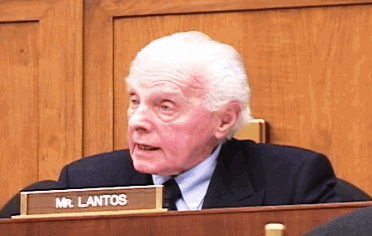Reserve Compensation
Lantos: Reserve Troops Deserve Proper Compensation [LA Times – otbblog/jamesotb]
Legislation that I introduced in March 2003 would require the federal government to ensure that its employees who enlist in the reserves and National Guard receive the same pay on active duty as they do in their civilian jobs.
My bill also would reward all employers, including state and local governments, that ensure their employees do not encounter financial burdens when activated.
Last week, the House Armed Services Committee included a provision in the defense authorization bill that does not go as far as my bill, but at least makes it part of the way. The provision bridges the salary gap for activated reservists and National Guard members up to $3,000 per month after 12 continuous months of active duty or if they have served 18 months out of the last 60.
It is unconscionable that as we ask reservists and National Guard members to make so many sacrifices for our country, we ask them to make a personal financial sacrifice as well.
I disagree strongly. People join the Reserves of their own volition. The idea that one Reserve company commander would be paid $100,000 and another $40,000 a year because one has a better civilian job than the other is simply mind-boggling, let alone that we would pay a Reservist more than someone who makes the sacrifice of being a career soldier. For that matter, what about the large number of Reservists who make more on Active Duty than in their civilian job? Would Lantos dock their pay? And why would we pay amateurs more than the professionals, anyway?
Update: I use the term “amateurs” to describe reservists to distinguish them from professionals, those who do the job full time. If we can get the same level of proficiency from personnel with minimal training, who drill one weekend a month and two weeks in the summer, we should abolish the active force immediately and begin criminal investigations against those who sold us on the idea of full-timers.
Amateurism is less of a problem–in some cases, virtually non-existent–for those whose military mission corresponds with their civilian duties. This is true of the professions (lawyers, medical personnel, chaplains), many pilots (who not only fly in their day job but tend to get more than the usual amount of flight time as reservists–and come in with 10 years of active duty experience to boot), and service support personnel.



James,
While I agree with you that the Lantos plan is not a good idea, I take exception to your assertion that reservists are “amateurs”. While some may be, your comment is grossly out of line for the majority of those I’ve dealt with. After all, without the reserve component, Army Civil Affairs wouldn’t really exist, and the reserve component handles all or at least most of several other missions. You’re better than that…